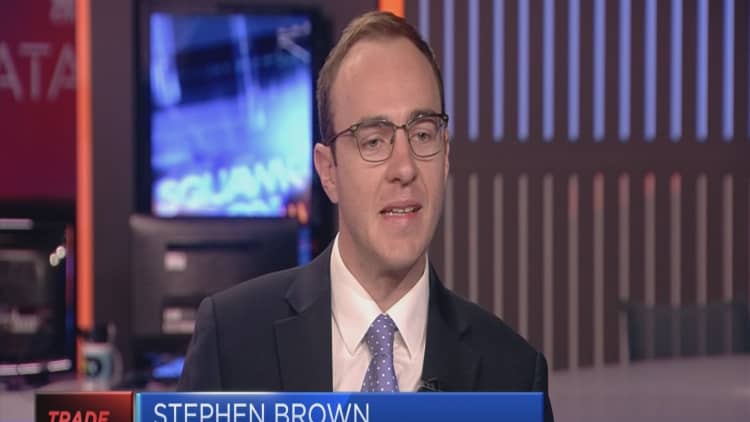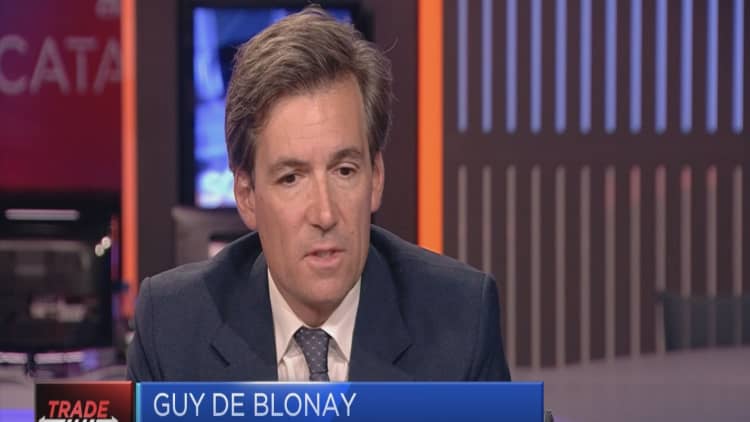
A six-year review clause in the revamped North American Free Trade Agreement (NAFTA) will "definitely" become a hot-button election issue over the coming years, a market expert told CNBC on Tuesday.
The U.S. and Canada forged a last-gasp deal to salvage NAFTA over the weekend, following more than a year of tense trilateral negotiations.
Until recently, Canada appeared to be on the brink of being excluded from a final agreement, but talks on Sunday eventually culminated in all three countries signing up to the new United States-Mexico-Canada (USMCA) accord.
One key takeaway from the USMCA deal is a clause that stipulates the agreement must be reviewed every six years. That's because many analysts believe this process is likely to inject an additional dose of uncertainty for global investors.
When asked whether the six-year review clause could become a touchstone election issue over the coming years, Stephen Brown, senior Canada economist at Capital Economics, replied: "Definitely."
"(President) Donald Trump could still be president in six years' time and that could hold some investment back," Brown told CNBC's "Squawk Box Europe" on Tuesday, before adding: "(A six-year review) becomes more of a sticking point because politicians have to actively put their support behind it."
Leverage
One senior Trump administration official told CNBC on Sunday that the review clause will provide the U.S. with a "significant new form of leverage" to make sure the arrangement is to its liking.
Initially, the Trump administration pushed Mexico and Canada to sign up to a deal that would allow all three countries to scrap the revamped NAFTA accord after only five years — unless they could agree otherwise.
Mexico and Canada pushed back over that five-year proposal, before eventually agreeing to a 16-year sunset clause — renewable following a six-year review.
"If every marriage had a five-year sunset clause, I think our divorce rate would be a heck of a lot higher than it is right now," David McNaughton, Canada's ambassador to the U.S, told Politico during negotiations last month.
NAFTA 2.0 'takes away' some uncertainty
Trump, who had long threatened to scrap the NAFTA deal in full, has lauded the USMCA pact as a key electoral promise fulfilled.
But critics of the revamped deal have questioned whether much has really changed from the original accord, prompting Trump to tell reporters on Monday: "It is not NAFTA redone. It is a brand new deal."

"The NAFTA revamp is an achievement in itself simply because it takes away some of the uncertainty on global trade," Guy de Blonay, fund manager at Jupiter Asset Management, told CNBC on Tuesday.
"Clearly markets have been cheering somewhat… But, of course, China is a much bigger entity and is probably the biggest part of the uncertainty on global trade," he added.
The USMCA deal is subject to approval by Congress.


